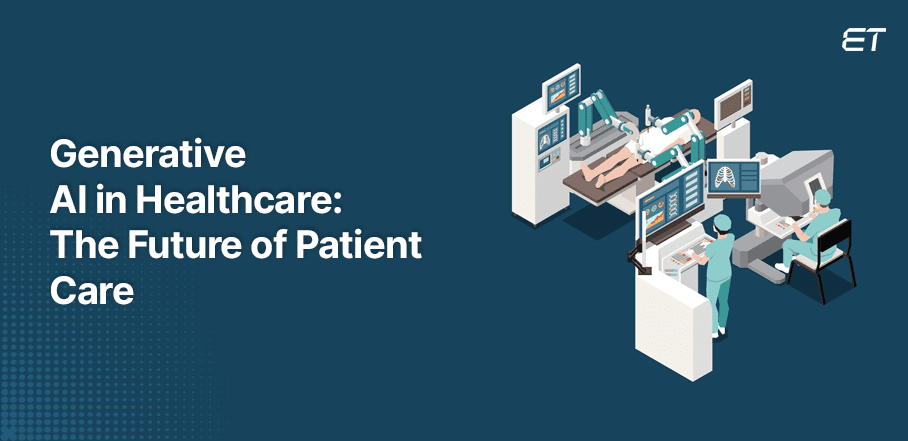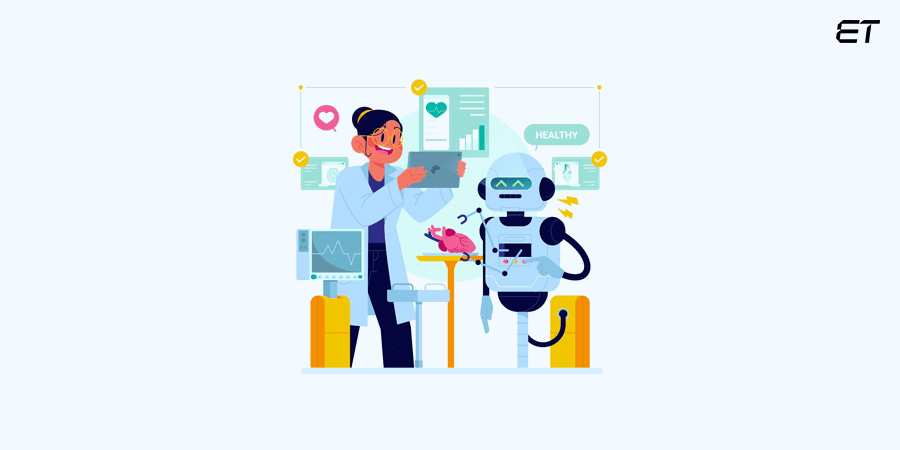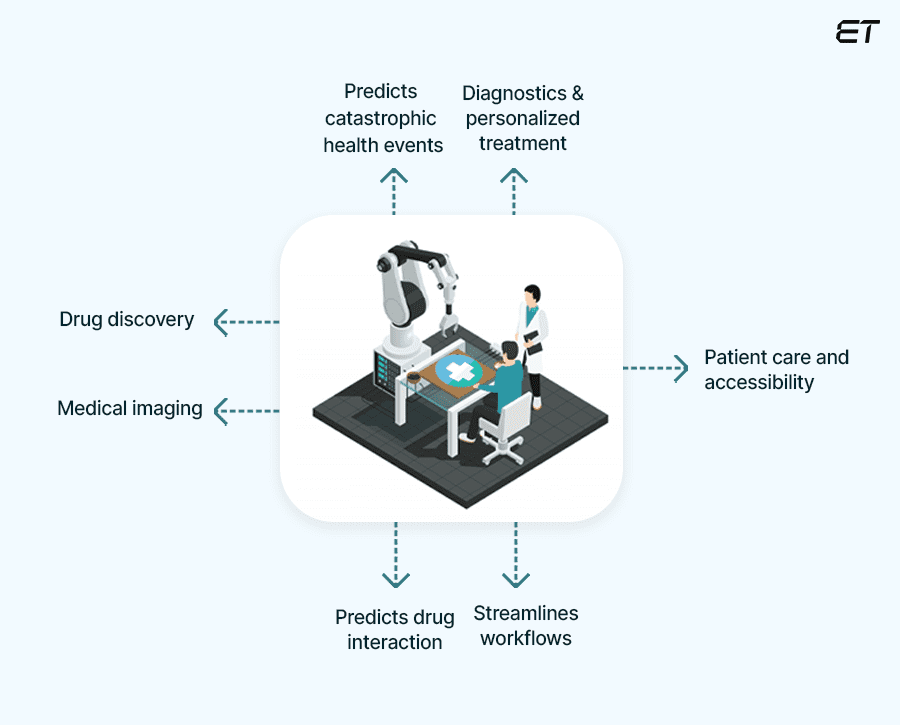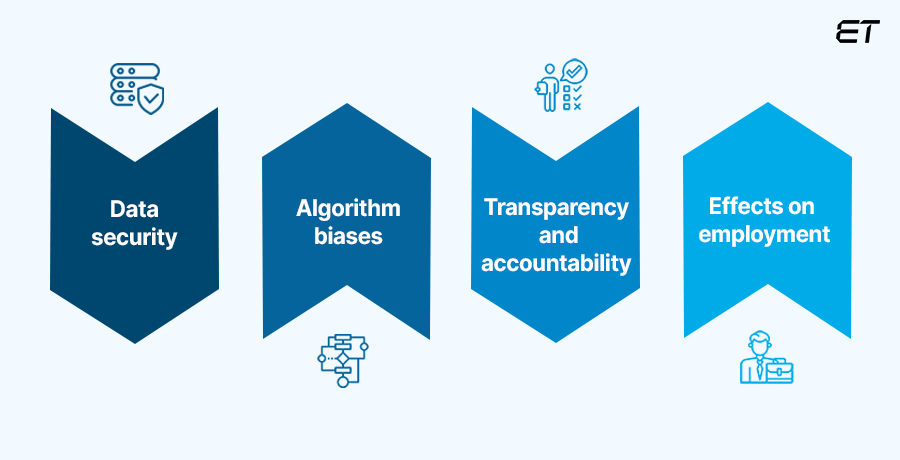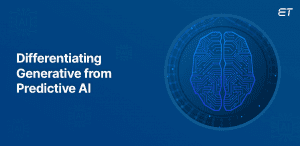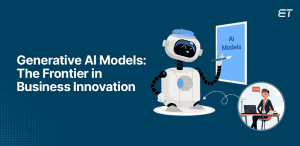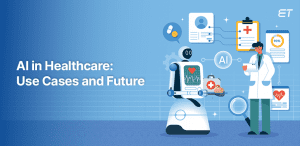What was once, not too long ago, just a theory — the application of generative AI in healthcare— has now become a formidable force, innovating medicine and patient care.
The numbers speak for themselves:
- A whopping 72% i.e., approximately 3 in 4 healthcare leaders in 2021 stated they relied on AI to automate administrative workflows.
- In 2022, generative AI in the healthcare market was valued at $1.07 billion globally, which was expected to reach $21.74 billion by 2032.
- In 2023, according to a Brain & Company study, 75% of health system executives believed in the revolutionary capabilities of generative AI.
Fast forward to the present, Deloitte’s 2024 Life Sciences and Health Care Generative AI Outlook Survey shows:
- 75% of leading pharmaceutical firms have been experimenting with or planning to scale generative AI use cases in healthcare.
- These leaders (92%) realize that generative AI can help better efficiencies, fostering swifter decision-making (65%).
Additionally, the American Medical Association (AMA) highlighted that 89% of physicians believed prior authorization delays negatively affect clinical outcomes. This can however be easily countered using generative AI.
How?
In this blog, we explore precisely that. We outline how generative AI works, its various use cases, and the key considerations to weigh while leveraging it in the healthcare sector. So, read on!

Looking to develop a healthcare IT solution? Here’s a case study to consider.
Generative AI in Healthcare: How Does it Work?
Generative AI is a branch of artificial intelligence that uses algorithms to create visuals, audio, speech, virtual environments, and other forms of synthetic data. They are trained on large real-life datasets (medical records, genetic information, etc.), neural networks, and deep learning architectures to replicate the features of their reference data.
Unlike traditional AI which only detects patterns and gathers analytics, Generative AI in healthcare is used to develop predictive models to make diagnoses, develop medical imaging, anticipate large-scale health crises, personalize treatment, discover new drugs, and much more.
They are trained to identify both broad and small-scale patterns in the training datasets which picks anomalies that tend to go unnoticed, thus helping in the early discovery of illnesses. When trained with larger training datasets, these models can be refined to be precise.
Generative AI Use Cases in Healthcare
Generative AI is rapidly reshaping the healthcare sector, innovating diagnostics, treatment, patient care, and administrative workflows.
At an individual level, it helps analyze patient data to chart personalized treatment plans. But, it can also be used to process vast datasets to identify disease trends. Let’s understand this better.
1. Generates and Enhances Medical Imaging
Imaging such as MRI and CT scans are indispensable for accurate diagnosis and treatment in the modern age. These scans however tend to be expensive. But with generative AI, it is now possible to generate high-resolution synthetic medical images that mimic real patient data.
Generative AI algorithms, particularly generative adversarial networks (GANs) and variational autoencoders (VAEs) have revolutionized imaging.
The medical images created with these AI models are less invasive, cost-effective, and take only a matter of seconds.
They can enhance existing medical images in instances when they are of low resolution or influenced by undesirable factors such as the noise in an emergency room or when a patient moves involuntarily during scans. Simply put, they help make scans more precise.
Lastly, synthetic medical images prove more ethical as compared to using real patient data for medical education and training.
2. Improves Diagnostics and Personalization of Treatment
Generative AI analyzes complex datasets such as medical records, genetic predispositions, and real-time health metrics to look for patterns and anomalies that may otherwise go unnoticed. This aids physicians in the early detection of illnesses and intervention in individuals with elevated risk.
Additionally, generative AI can be used to examine lifestyle data to suggest personalized treatment regimens that prove more effective and minimize potential side effects.
3. Accelerates Drug Discovery
By predicting molecular interactions and improving drug design, generative AI can significantly speed up the lengthy and expensive process of traditional drug development.
If the COVID-19 pandemic has taught us anything, it’s that such acceleration can save thousands of lives during medical crises.
Even under normal circumstances, pharmaceutical research is inherently resource-intensive, requiring extensive laboratory work, and vast datasets. But by automating key aspects of the drug development process, generative AI pushes research decades ahead.
Lastly, generative AI can sift through mountains of diverse chemical and biological data and usher innovation in drug design by suggesting novel drug candidates.
4. Boosts Patient Care and Accessibility
Remote monitoring and telemedicine are now a possibility with generative AI. Wearable devices like health watches that have grown popular in recent years, use AI algorithms to continuously monitor and analyze health data. This enables timely interventions, particularly in patients with chronic diseases.
Additionally, virtual healthcare assistants or medical chatbots powered by automated generative AI can engage with patients to provide information, schedule and send reminders for appointments and medication, and in the future even triage patients by assessing their symptoms.
This will boost accessibility and adherence to treatment plans. Hence, it may be safe to argue that waiting in long queues outside of a doctor’s chamber may soon be a thing of the past.
5. Predicts Drug Interaction
Generative AI can also predict drug interactions thus proving useful in avoiding adverse reactions in patients. Physicians can leverage these models to make informed decisions when prescribing multiple medications to a patient.
6. Streamlines Administrative Workflows
Healthcare as a sector relies on meticulous documentation whether it be billing, medical history, or treatment plans. However, with the coming of generative AI, tasks such as staff scheduling and the creation of discharge summaries, care coordination notes, and other administrative documents, have been automated. This not only reduces human error but also allows healthcare workers to focus primarily on patient care.
Moreover, these AI models can be used to predict patient admission rates which allows healthcare firms to put in place backup strategies by simulating supply chain disruptions. This not only helps in resource optimization but also ensures preparedness for emergencies.
7. Predicts Global Catastrophic Health Events
Generative AI models, in recent times, have also been leveraged by scientists to predict catastrophic health crises. They can be used to study epidemics and pandemics, explore preventive measures, and identify new antibodies to combat infectious diseases. They anticipate pattern changes, spread, and pathology of a virus before it spreads, identifying signatures that bear the risk of becoming variants of concern.
These seven generative AI use cases in healthcare are only the tip of the iceberg. These models have completely reshaped the way patient care is delivered, unlocking capabilities that were previously inconceivable.



Are you a healthcare brand looking to innovate? Here’s how we helped renowned pharmaceutical Johnson & Johnson improve sales forecasting and beat the competition.
Challenges and Ethical Concerns of Using Generative AI in Healthcare
While generative AI can automate tasks, revolutionizing how we approach diagnostics and treatment planning, we must factor in its key challenges and ethical considerations. Let’s weigh them.
1. Data Security
Since generative AI works by analyzing and interpreting datasets, implementing robust data security measures is paramount to safeguarding patient information. Strong encryption protocols, access controls, anonymization techniques, secure data-sharing frameworks, and authorization mechanisms must be put in place to avoid data breaches and cyber threats.
2. Algorithm Biases
Biases in the AI algorithm, in the historical data, can result in incorrect diagnoses and subsequent treatment plans. Hence, extensive evaluation of the training datasets and running fairness-aware algorithms is a must to help mitigate inaccurate influences.
3. Transparency and Accountability
To ensure the ethical use of generative AI, service providers must guarantee that the decision-making process of these models is traceable. They should outline the factors that affect the generated outputs to allow physicians to validate and leverage them for swifter and more accurate patient care.
4. Effects on Employment
One of the biggest concerns with the emergence of AI is the loss of jobs that have now been automated. Although the benefits of generative AI in healthcare outweigh its cons, it is also important that we factor in its impact on employment. While AI can eliminate human errors and deliver swifter insights, the transition must be done in a way that supports and upskill the workforce and not displace it.
The generative AI use cases in healthcare may still need heaps of refining to ensure precision but one thing is clear— the future of healthcare is here, full of promises.
Summing Up Generative AI in Healthcare
The application of Generative AI in healthcare has ushered in a new era of innovation with limitless possibilities.
It holds immense promise— from enhancing diagnostics and personalizing treatment to accelerating drug discovery and improving administrative efficiency, it has redefined how we approach patient care.
However, as the saying goes—with great power comes great responsibility— responsibility to factor in its ethical challenges to uphold patient privacy and support and upskill the workforce rather than displacing them, becomes key.
As the world stands on the cusp of this exciting future, hop on the AI bandwagon to beat the competition. If you’re looking for AI software development services, schedule a free consultation with our team of experts and get the ball rolling.
Frequently Asked Questions on Generative AI in Healthcare
1. What are the primary steps to integrating generative AI in healthcare?
Integrating generative AI in healthcare involves several strategic steps to ensure successful implementation, compliance with regulations, and optimizing benefits for both providers and patients.
Begin by assessing which areas can most benefit from generative AI. Subsequently, launch pilot projects in select departments and gather insights for broader deployment. Next, integrate with existing healthcare IT systems. But remember to ensure compliance with HIPAA (in the US) and GDPR (in Europe) and to set necessary precautions to guarantee data privacy and security. Once your basic infrastructure is in place, monitor, train, and regularly update these AI models to improve accuracy and reliability. Simultaneously, train your workforce to use these AI tools.
2. Does generative AI in Healthcare Raise Privacy or Security Concerns?
Yes, safeguarding patient privacy is a key concern as the use of generative AI in healthcare grows exponentially. This is because these models work by analyzing and interpreting real datasets, including medical records and genetic information.
Data leaks and cyber threats become a possibility as a health firm doesn’t typically own the AI system. Hence, implementing robust data security measures such as encryption protocols, access controls, anonymization techniques, safe data-sharing frameworks, and authorization mechanisms, is a must.
Excellence-driven professional with 15+ years of experience in increasing productivity, and revenue, while effectively managing products of all sizes. He has worked for international clients in the US, UK, and Singapore and local companies in various domains. With excellent attention to detail and a methodical approach to execution, he is an expert in bringing projects to a successful stage. He follows James Humes’s famous saying- “The art of communication is the language of leadership.”
